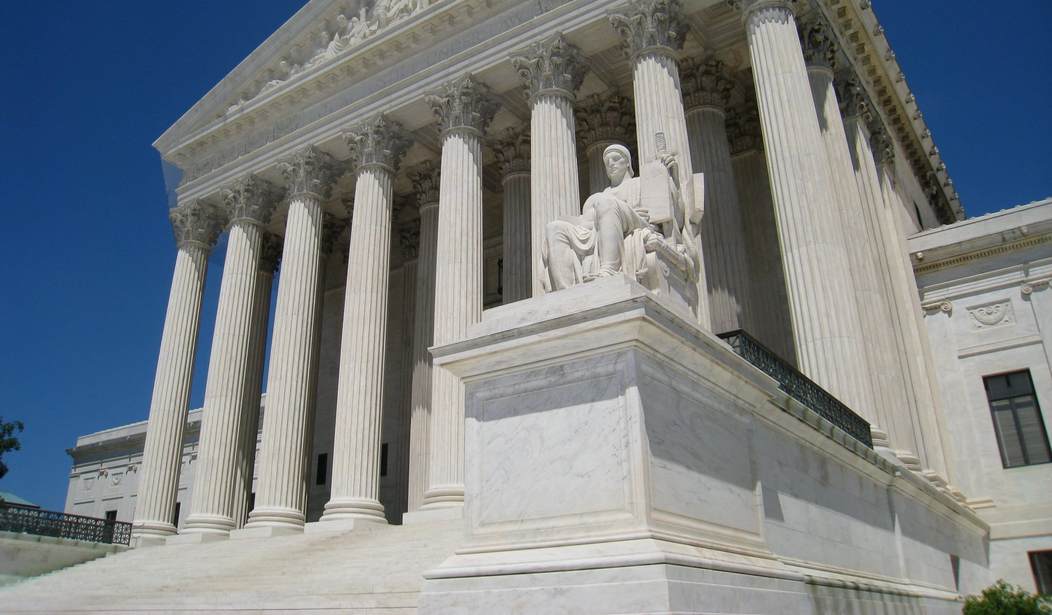On Monday, the U.S. Supreme Court struck down the Lanham Act’s ban on “immoral or scandalous” trademarks, claiming the ban violates the First Amendment by engaging in viewpoint discrimination.
“There are a great many immoral and scandalous ideas in the world (even more than there are swearwords), and the Lanham Act covers them all. It therefore violates the First Amendment,” Justice Elena Kagan wrote in the majority opinion for Andrei Iancu v. Erik Brunetti (2019). Justices Clarence Thomas, Ruth Bader Ginsburg, Samuel Alito, Neil Gorsuch, and Brett Kavanaugh joined Kagan’s decision, yielding a 6-3 win for Brunetti.
In 2011, Erik Brunetti attempted to register the trademark “FUCT” for a clothing brand he had founded in 2011. The U.S. Patent Trade Office (USPTO) rejected the application under the Lanham Act.
The USPTO Trademark Trial and Appeal Board upheld the decision, saying the brand was displayed with “strong, and often explicit, sexual imagery that objectifies women and offers degrading examples of extreme misogyny.” As such, the board argued that Brunetti’s use of the trademark would “be perceived by his targeted market segment” as the obscene word for which it is a homonym (i.e. f**ked).
Brunetti appealed, and the U.S. Court of Appeals for the Federal Circuit struck down the USPTO’s ruling as a “content-based restriction on speech” subject to strict scrutiny under the First Amendment. In the 2017 Supreme Court case Matal v. Tam, the Court struck down the Lanham Act’s separate prohibition of trademarks that “disparage … persons, living or dead, institutions, beliefs, or national symbols, or bring them into contempt, or disrepute” as unconstitutional under the First Amendment.
Iancu v. Brunetti expanded this ruling, striking down the “immoral or scandalous” trademark ban.
All nine justices agreed that the Lanham Act ban was overbroad, but three justices argued that the ban could be tightened in a way that would still block Brunetti’s FUCT trademark.
Chief Justice John Roberts wrote a partial dissent, claiming that while the Lanham Act ban was too broad, it should be limited rather than struck down, and Brunetti should not have been able to register the FUCT trademark.
“No speech is being restricted; no one is being punished,” Roberts wrote in an opinion that Justice Stephen Breyer joined. “The owners of such marks are merely denied certain additional benefits associated with federal trademark registration. The Government, meanwhile, has an interest in not associating itself with trademarks whose content is obscene, vulgar, or profane. The First Amendment protects the freedom of speech; it does not require the Government to give aid and comfort to those using obscene, vulgar, and profane modes of expression.”
Justice Sonia Sotomayor wrote a similar opinion, favoring a more limited Lanham Act ban that would still block the FUCT trademark. Breyer joined her opinion as well.
Ilya Shapiro, a constitutional law scholar at the Cato Institute, argued that even the narrower ban supported by Roberts, Sotomayor, and Breyer “would be an improper use of the judicial power.”
https://twitter.com/ishapiro/status/1143172827492900864
Follow the author of this article on Twitter at @Tyler2ONeil.









Join the conversation as a VIP Member